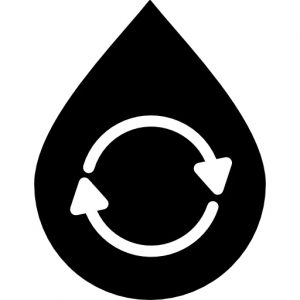The Importance of Water Treatment: Protecting Your Health and Home
 Water is an essential resource that we use every day for drinking, cooking, cleaning, and bathing. However, the quality of our water is not always guaranteed, and it can pose significant health risks if left untreated. That’s where water treatment comes in. Water treatment is the process of removing harmful contaminants and impurities from our water supply, ensuring that it is safe for consumption and use. In this day and age, the importance of water treatment cannot be overstated. It protects us and our loved ones from harmful bacteria, viruses, and chemicals that can cause illnesses and diseases. Not only that, but water treatment also helps protect our homes from damage caused by hard water and other mineral deposits. In this article, we’ll explore the various benefits of water treatment and why it is crucial for maintaining our health and home.
Water is an essential resource that we use every day for drinking, cooking, cleaning, and bathing. However, the quality of our water is not always guaranteed, and it can pose significant health risks if left untreated. That’s where water treatment comes in. Water treatment is the process of removing harmful contaminants and impurities from our water supply, ensuring that it is safe for consumption and use. In this day and age, the importance of water treatment cannot be overstated. It protects us and our loved ones from harmful bacteria, viruses, and chemicals that can cause illnesses and diseases. Not only that, but water treatment also helps protect our homes from damage caused by hard water and other mineral deposits. In this article, we’ll explore the various benefits of water treatment and why it is crucial for maintaining our health and home.
The Dangers of Untreated Water
Drinking untreated water can be dangerous to your health. Water can contain microorganisms like bacteria, viruses, and parasites that can cause serious illnesses such as cholera, typhoid, and dysentery. In addition to microorganisms, water can also contain harmful chemicals such as lead, arsenic, and fluoride, which can cause long-term health problems.
Water sources like wells, lakes, and rivers can be contaminated by agricultural or industrial runoff, animal waste, and sewage. These contaminants can enter the water supply and cause significant harm to people who consume it.
In addition to health risks, untreated water can also damage your home’s plumbing and appliances. Hard water, which is water that contains high levels of minerals like calcium and magnesium, can cause scale buildup in pipes and water heaters, reducing their efficiency and lifespan.
Common Contaminants in Water
Water can be contaminated by a wide range of substances. Some of the most common contaminants found in water include bacteria, viruses, parasites, chemicals, and heavy metals.
Bacteria like E. coli and Salmonella can cause serious illnesses such as diarrhea, vomiting, and fever. Viruses like Hepatitis A and Norovirus can also cause similar symptoms. Parasites like Cryptosporidium and Giardia can cause diarrhea, nausea, and stomach cramps.
Chemicals like lead, arsenic, and fluoride can cause long-term health problems such as developmental issues and cancer. Heavy metals like copper and zinc can also cause health issues if consumed in high amounts.
Health Risks Associated with Contaminated Water
Contaminated water can cause a range of health problems depending on the type and amount of contaminants present. Some of the most common health risks associated with contaminated water include:
- Gastrointestinal illnesses such as diarrhea, nausea, and vomiting
- Skin rashes and irritations
- Respiratory problems such as asthma and bronchitis
- Developmental issues in children
- Reproductive problems
- Cancer
Children, pregnant women, and people with compromised immune systems are particularly vulnerable to the health risks associated with contaminated water.
Benefits of Water Treatment
Water treatment has numerous benefits for both your health and your home. By removing harmful contaminants, water treatment ensures that your water is safe to drink and use. This can help prevent illnesses and diseases caused by microorganisms and chemicals in the water.
Water treatment can also help improve the taste and odor of your water. Many contaminants can make water taste and smell unpleasant, but water treatment can remove these impurities, leaving you with clean and refreshing water.
In addition to health benefits, water treatment can also help protect your home’s plumbing and appliances. Hard water can cause scale buildup in pipes and water heaters, reducing their efficiency and lifespan. Water treatment can help prevent this buildup, extending the life of your plumbing and appliances.
Types of Water Treatment Systems
There are several types of water treatment systems available, each designed to remove specific contaminants from the water. Some of the most common types of water treatment systems include:
Reverse osmosis systems: These systems use a semipermeable membrane to remove impurities from the water.
Activated carbon filters: These filters use activated carbon to remove chlorine, volatile organic compounds, and other impurities from the water.
Ultraviolet disinfection systems: These systems use UV light to kill bacteria and viruses in the water.
Water softeners: These systems remove hard water minerals like calcium and magnesium from the water, preventing scale buildup in pipes and appliances.
Choosing the Right Water Treatment System for Your Home
Choosing the right water treatment system for your home depends on several factors, including the type and amount of contaminants in your water, your budget, and your household’s water usage.
It’s important to have your water tested to determine the type and amount of contaminants present. This will help you choose the best water treatment system for your needs.
Consider your budget when choosing a water treatment system. Some systems can be expensive to install and maintain, while others are more affordable.
Finally, consider your household’s water usage when choosing a water treatment system. Some systems are better suited for larger households with higher water usage, while others are better suited for smaller households with lower water usage.
Water Treatment Maintenance and Upkeep
Proper maintenance and upkeep are essential for ensuring that your water treatment system continues to function properly. Most water treatment systems require regular maintenance, including filter changes, cleaning, and sanitization.
It’s important to follow the manufacturer’s instructions for maintenance and upkeep to ensure that your water treatment system is working effectively and efficiently. Neglecting maintenance can lead to lower water quality and reduced system lifespan.
Professional Water Treatment Services
If you’re unsure about which water treatment system is best for your needs, or if you need help with maintenance and upkeep, consider hiring a professional water treatment service.
Professional water treatment services can help you determine the best system for your needs, install the system, and provide ongoing maintenance and support.
Conclusion
Water is an essential resource that we use every day for drinking, cooking, cleaning, and bathing. But the quality of our water is not always guaranteed, and it can pose significant health risks if left untreated. That’s why water treatment is so important.
Water treatment removes harmful contaminants and impurities from our water supply, ensuring that it is safe for consumption and use. Water treatment also helps protect our homes from damage caused by hard water and other mineral deposits.
There are several types of water treatment systems available, and choosing the right one depends on several factors, including the type and amount of contaminants in your water, your budget, and your household’s water usage.
Proper maintenance and upkeep are essential for ensuring that your water treatment system continues to function properly. If you’re unsure about which water treatment system is best for your needs, or if you need help with maintenance and upkeep, consider hiring a professional water treatment service.
In conclusion, water treatment is crucial for maintaining our health and home. By ensuring that our water is safe and clean, we can protect ourselves and our loved ones from harmful contaminants and impurities.
